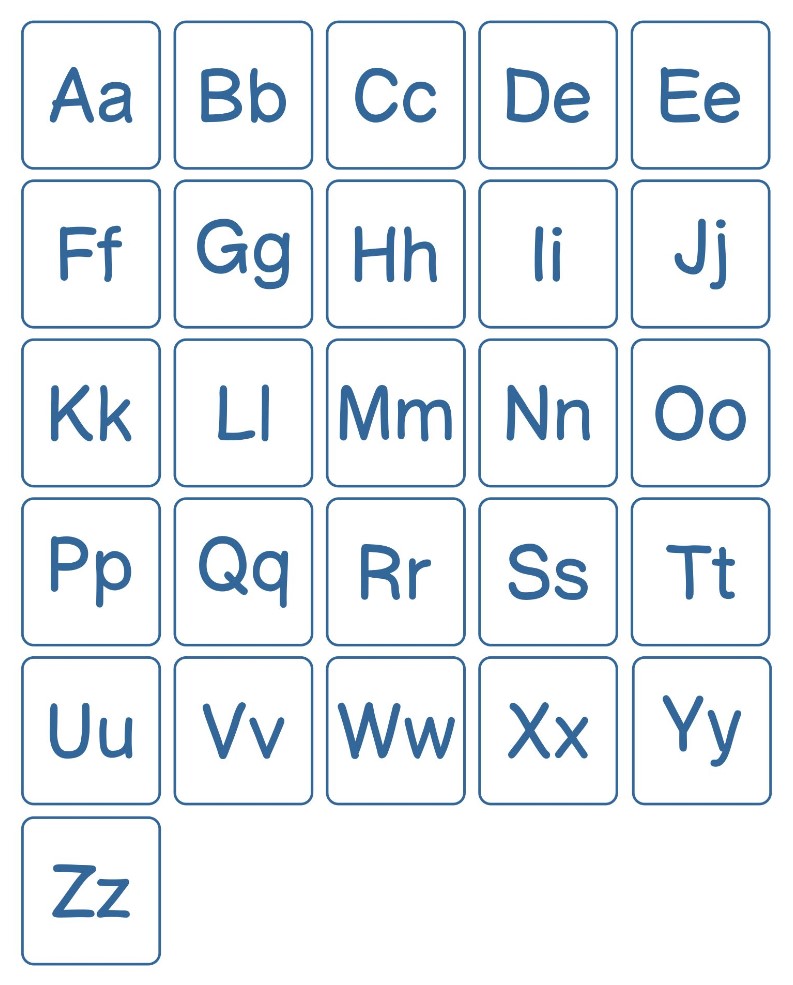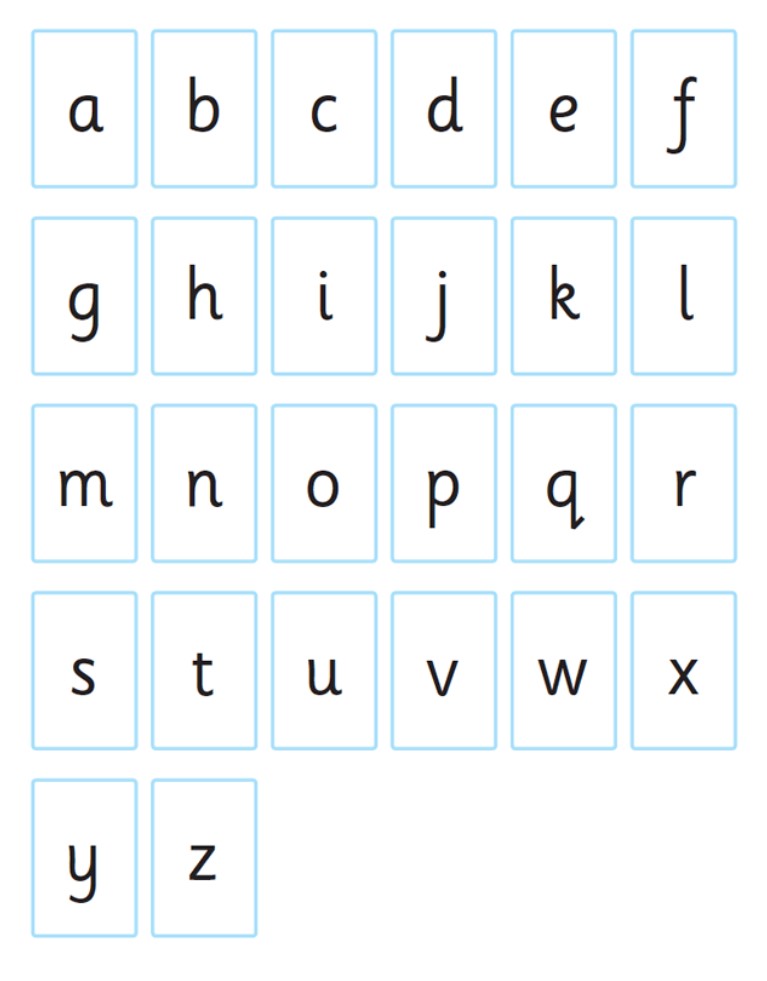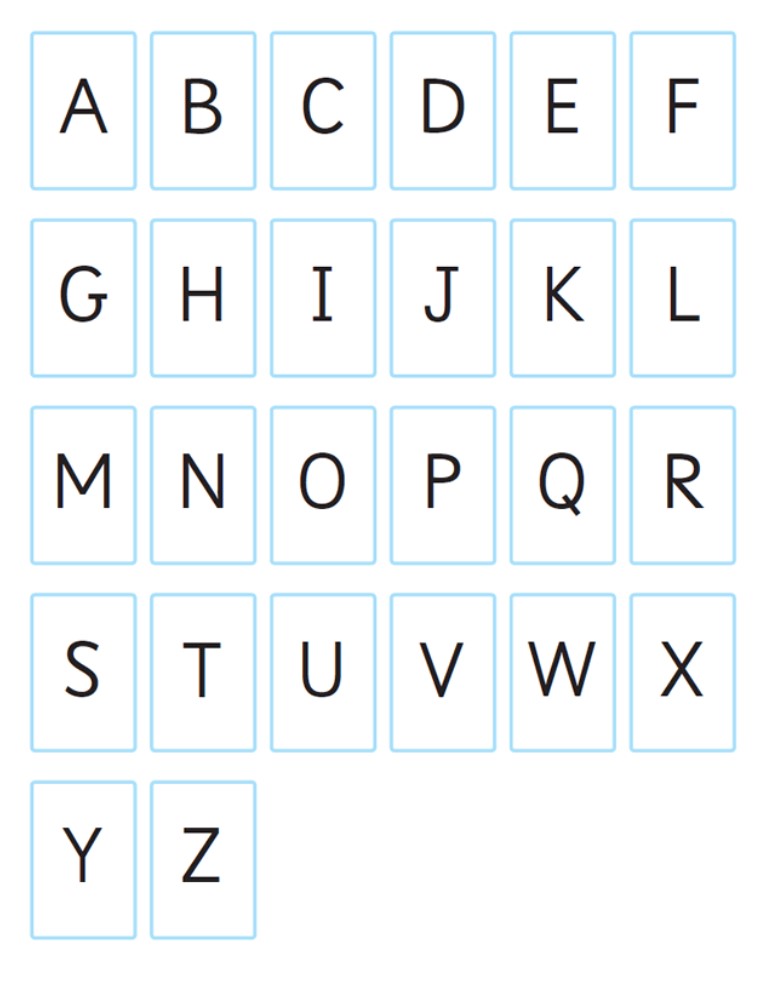Printable alphabet cards have become invaluable resources in the realm of education, language acquisition, and early childhood development. These versatile and visually appealing tools offer an engaging way to introduce and reinforce letter recognition, phonics, and vocabulary. In this article, we will explore the world of printable alphabet cards, their benefits, applications, and how they contribute to language learning and cognitive development.

The Power of Printable Alphabet Cards:
Printable alphabet cards provide a wealth of advantages over traditional learning materials. With just a few clicks, educators, parents, and caregivers can access a wide range of printable alphabet cards online. These cards can be easily printed and used for various activities, making language learning both interactive and enjoyable.
Engaging Learning Experiences:
The visual appeal of printable alphabet cards captivates young learners, sparking their curiosity and eagerness to explore language. Each card typically features a letter of the alphabet along with accompanying images that represent words starting with that particular letter. This association between letters and objects helps children develop letter-sound recognition and vocabulary skills.

Interactive Activities:
Printable alphabet cards lend themselves to a multitude of interactive activities that enhance language learning. Teachers and parents can use these cards for letter matching games, where children match objects or words to the corresponding letter. They can also be used for memory games, where children have to recall the letter and its associated word or object. These hands-on activities foster active engagement, improve memory retention, and reinforce the understanding of letter-sound relationships.
Seamless Integration with Multisensory Learning:
Printable alphabet cards can be combined with other sensory experiences to create a multisensory learning environment. For example, educators can incorporate tactile elements by encouraging children to trace the letters on the cards with their fingers or use textured materials to create sensory alphabet cards. This approach stimulates multiple senses, reinforcing the learning process and catering to various learning styles.
Personalization and Customization:
One of the significant advantages of printable alphabet cards is the ability to personalize and customize them according to specific learning needs. Educators can choose from various fonts, styles, and colors to suit their teaching preferences or match a particular theme. Additionally, printable cards allow for the inclusion of culturally relevant images, ensuring that learners are exposed to familiar objects and words, making the learning experience more relatable and meaningful.

Language Expansion and Extension:
Printable alphabet cards serve as a springboard for language expansion and extension. As children become proficient in letter recognition and phonics, educators can use these cards as prompts for storytelling or language games. The cards can be the starting point for discussions, vocabulary building, and creative writing exercises, fostering language fluency and encouraging critical thinking skills.
Printable alphabet cards have revolutionized the way we approach language learning in early childhood education. Through engaging visuals, interactive activities, and customizable features, these cards provide a powerful tool for introducing letters, sounds, and vocabulary. By incorporating printable alphabet cards into educational settings, educators and parents can create stimulating learning experiences that promote language development, cognitive skills, and a lifelong love for learning. So, let the journey of language exploration begin with printable alphabet cards, unlocking the doors to communication, literacy, and endless possibilities.